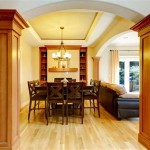How To Open a Home Decor Business In Bahrain 2025
The Kingdom of Bahrain, a vibrant island nation in the Arabian Gulf, presents a promising market for home decor businesses. In 2025, several factors contribute to this potential, including a growing upper-middle class, an active real estate market, and an increasing awareness of interior design trends. This article provides a comprehensive guide on how to establish a home decor business in Bahrain during this period, outlining key considerations, legal requirements, and operational strategies.
Prior to launching a business, conducting thorough market research is paramount. This research should encompass an analysis of consumer preferences, competitor landscape, and prevailing economic conditions within Bahrain. Understanding the nuances of the Bahraini market will inform critical decisions regarding product offerings, pricing strategies, and marketing approaches. The study should also consider the impact of global trends on the local market, ensuring the business aligns with international standards while catering to local tastes.
Market research needs to delve into the specific demographics and psychographics of the target audience. Understanding their purchasing power, preferred styles (modern, traditional, Islamic-inspired), and price sensitivity will enable the business to curate a relevant and attractive product catalog. Furthermore, researching the existing competition helps identify gaps in the market and opportunities for differentiation. This includes analyzing competitor pricing, product ranges, marketing strategies, and customer service approaches.
Analyzing Bahrain’s economic landscape provides insights into the overall business environment. Key indicators to monitor include GDP growth, inflation rates, and consumer confidence levels. Government initiatives aimed at supporting small and medium-sized enterprises (SMEs) should also be explored, as they may offer financial assistance or other forms of support.
Developing a Comprehensive Business Plan
A robust business plan serves as a roadmap for the entire venture. It outlines the business's objectives, strategies, and financial projections. This document is crucial for securing funding, attracting investors, and guiding day-to-day operations. The business plan should include detailed information on the following aspects:
Executive Summary: A concise overview of the business concept, market opportunity, and financial projections.
Company Description: Detailed information about the business, including its mission, vision, values, and legal structure. This section should also outline the company's competitive advantages and unique selling propositions.
Market Analysis: A comprehensive assessment of the target market, including its size, demographics, needs, and purchasing behavior. This section should also analyze the competitive landscape and identify potential opportunities and threats.
Products and Services: A detailed description of the home decor products and services offered by the business. This should include information on product sourcing, pricing, and quality control.
Marketing and Sales Strategy: A comprehensive plan for reaching the target market and generating sales. This should include information on branding, advertising, public relations, and sales channels (e.g., online store, retail outlet, partnerships with interior designers).
Management Team: Information about the key personnel involved in the business, including their experience, skills, and responsibilities. This section should highlight the team's ability to effectively manage and grow the business.
Financial Projections: Detailed financial forecasts, including projected revenues, expenses, and profitability. This section should include a break-even analysis, cash flow projections, and a funding request (if applicable).
Appendix: Supporting documents, such as market research reports, resumes of key personnel, and letters of intent from suppliers or customers.
Navigating Bahraini Legal Requirements and Business Registration
Establishing a business in Bahrain requires adherence to specific legal and regulatory requirements. This includes obtaining the necessary licenses and permits, complying with labor laws, and fulfilling tax obligations. Understanding and navigating these requirements is crucial for ensuring the business operates legally and sustainably.
The first step is to determine the appropriate legal structure for the business. Common options include sole proprietorship, partnership, limited liability company (LLC), and joint stock company. The choice of legal structure will impact liability, taxation, and administrative requirements. For most home decor businesses, an LLC is a suitable option, offering limited liability protection and a relatively straightforward registration process.
The business registration process involves several steps, including registering the company name, obtaining a Commercial Registration (CR) certificate from the Ministry of Industry, Commerce and Tourism (MOICT), and registering with the Social Insurance Organization (SIO) and the Labour Market Regulatory Authority (LMRA) if employing staff. Detailed information about the registration process can be found on the MOICT website and through authorized business service providers.
In addition to the CR, the business may require specific licenses or permits depending on the nature of its activities. For example, if the business involves importing goods, an import license from Bahrain Customs is required. If the business operates a retail outlet, a municipal license from the relevant municipality is necessary.
Compliance with Bahraini labor laws is essential for any business employing staff. This includes adhering to regulations related to wages, working hours, leave entitlements, and employee benefits. Businesses must also register their employees with the SIO and LMRA and contribute to social security and work permit fees.
Bahrain's tax system includes corporate income tax (CIT) for certain industries, value-added tax (VAT), and social security contributions. Understanding these tax obligations and complying with reporting requirements is crucial for maintaining financial stability and avoiding penalties. Businesses should consult with a qualified tax advisor to ensure compliance with all applicable tax laws.
Sourcing Products and Establishing Supply Chains
The success of a home decor business hinges on the quality, variety, and affordability of its products. Establishing reliable and efficient supply chains is crucial for sourcing products that meet customer needs and maintain profitability. Businesses can choose to source products locally, internationally, or a combination of both.
Local sourcing offers several advantages, including shorter lead times, lower shipping costs, and the ability to support local artisans and manufacturers. Bahrain has a growing number of skilled craftspeople and small-scale manufacturers producing unique home decor items. Building relationships with these suppliers can provide access to distinctive products that differentiate the business from its competitors. However, local sourcing may be limited in terms of product variety and may not always be the most cost-effective option.
International sourcing opens up a wider range of product options and can often be more cost-effective, especially for mass-produced items. Popular sourcing destinations for home decor products include China, India, Europe, and the United States. When sourcing internationally, businesses need to consider factors such as shipping costs, import duties, currency exchange rates, and quality control. It is advisable to work with reputable suppliers and conduct thorough due diligence to ensure product quality and compliance with import regulations.
Establishing efficient supply chains requires careful planning and coordination. This includes selecting reliable shipping companies, negotiating favorable payment terms with suppliers, and implementing inventory management systems. Businesses should also consider using technology to streamline supply chain processes, such as electronic data interchange (EDI) and cloud-based inventory management software.
Sustainability is an increasingly important consideration for consumers. Businesses can differentiate themselves by prioritizing ethically sourced and environmentally friendly products. This includes working with suppliers who adhere to fair labor practices, use sustainable materials, and minimize their environmental impact. Promoting sustainable products can appeal to environmentally conscious customers and enhance the business's reputation.

Home Furnishings S Market Report 2025 Size Growth By 2034

List Of Interior Design Company In Bahrain

Home Furnishings S Market Report 2025 Size Growth By 2034

Design Meets Innovation In Bahrain Bay Four Seasons

Inspiration Guide To 2025 Interior Design Trends Redrow

2025 Kitchenware Kitchen Trends Asd Market Week

Furniture Market Report 2025 Segments Trends

Majlis Interior Design And Decoration

The 6 Steps Of Interior Design Process Alma De Luce

Corporate Offices Interior Design
Related Posts







